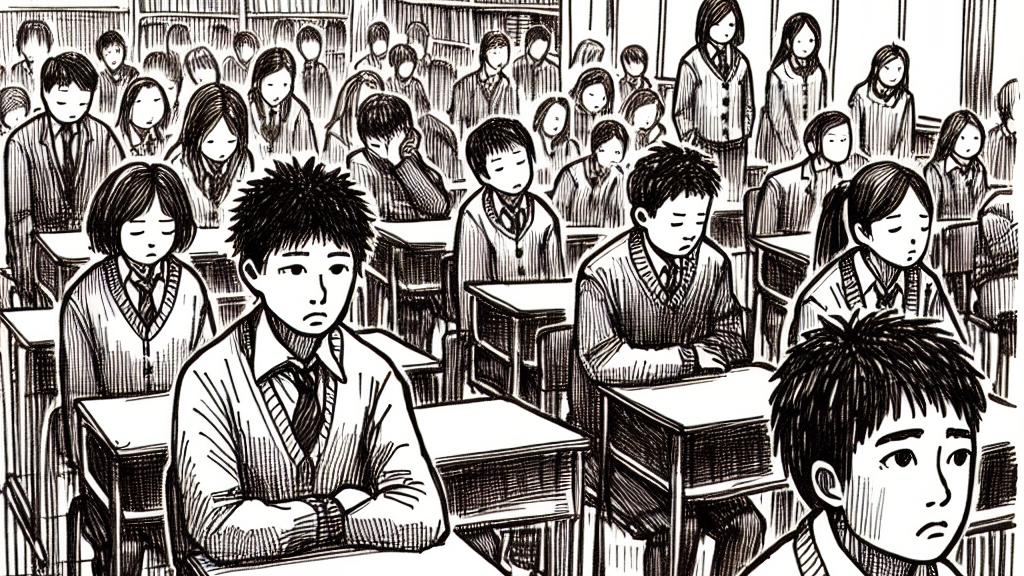Increase in School Refusal Among Students Hits Record High
Overview
- A staggering 34,648 students were absent from school for more than 30 days last year, exposing a deepening crisis in education.
- This unprecedented trend marks 11 consecutive years of rising school refusal rates, raising alarms among educators and policymakers.
- The government calls for immediate action, emphasizing the critical need for tailored educational support and rigorous intervention against bullying.

Alarming Rise in School Refusal Rates
Japan faces an education crisis as over 346,000 elementary and middle school students are now classified as school refuse. This figure reflects a staggering 15% surge from the previous year, and it is the highest number recorded to date. For context, the number of elementary school students who don’t attend has dramatically increased fivefold over the past decade, while middle school students have seen a notable 2.2 times rise. Such unsettling statistics not only underscore the escalating challenges faced by these young learners but also highlight a pressing need for systemic change within the educational framework.
Understanding the Complex Causes of School Refusal
Multiple factors contribute to the rise of school refusal, revealing an intricate web of challenges. A recent survey found that a striking 51.8% of students attribute their absences to feelings of demotivation and anxiety. Furthermore, the COVID-19 pandemic has significantly disrupted daily routines, leaving many children struggling to reintegrate into their school environments. For example, the cancellation of school events and restrictions on social interactions have left children feeling isolated and unmotivated. Additionally, bullying looms large, with over 73,000 reported cases highlighting a growing culture of emotional distress. Alarmingly, many students reported that serious incidents of bullying often go unnoticed by school authorities until they reach critical and sometimes tragic outcomes, reinforcing the need for vigilant and proactive measures from schools.
A Call to Action for Meaningful Solutions and Support
The Ministry of Education has urgently stated that a multifaceted approach is essential for addressing the unique needs of each student facing the challenges of school refusal. For instance, implementing flexible learning options—such as free schools, alternative education programs, and online schooling—could provide much-needed relief for affected students. This shift reflects a broader understanding among parents that traditional schooling is not the sole path to academic achievement. By embracing diverse learning environments, we can foster resilience and adaptability in students, essential skills for their future. Moreover, emphasizing comprehensive emotional support alongside educational strategies can create a more inclusive environment where students feel secure and motivated. Taken together, these actions offer a path towards improving the educational landscape and effectively combating the growing issue of school refusal.

Loading...